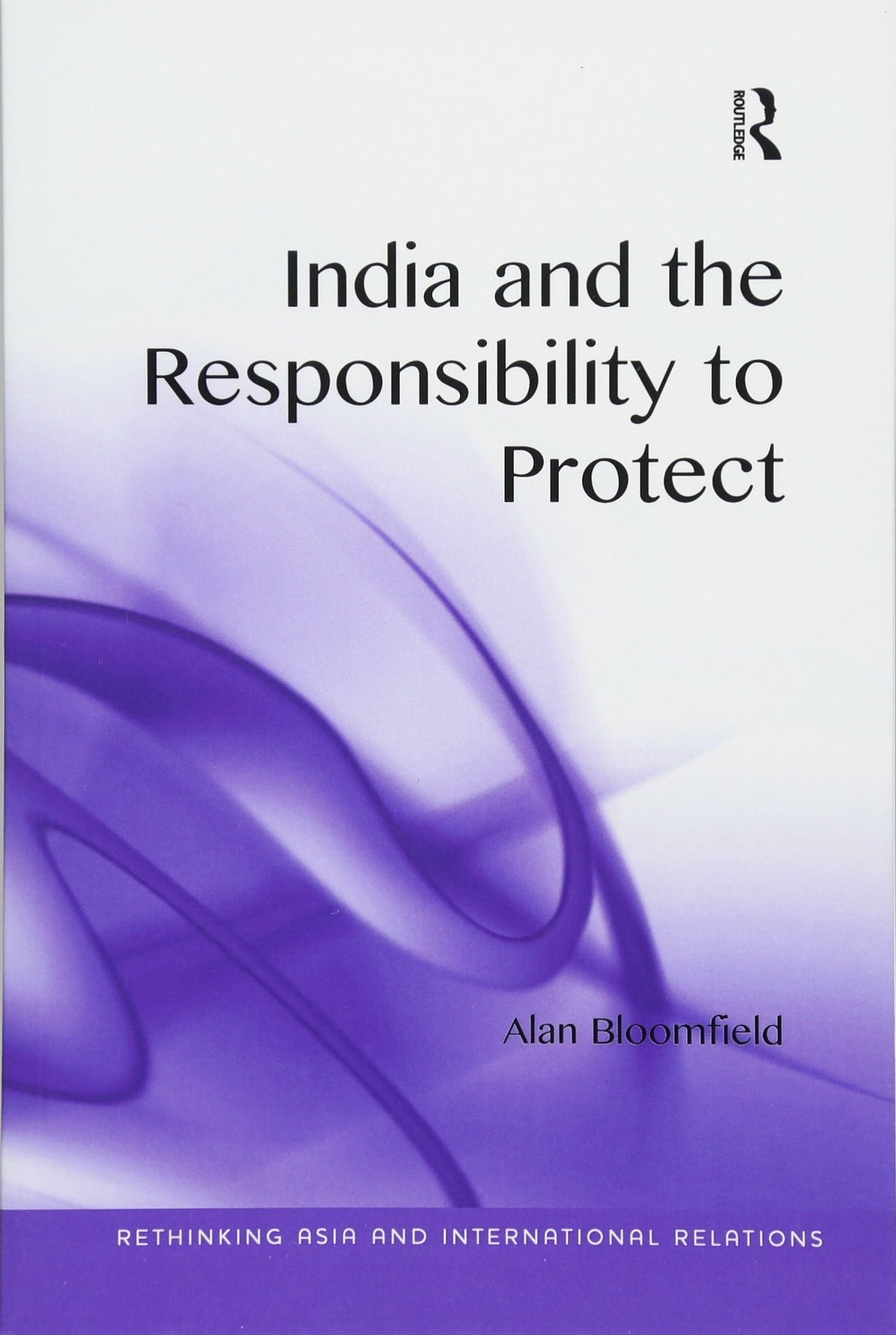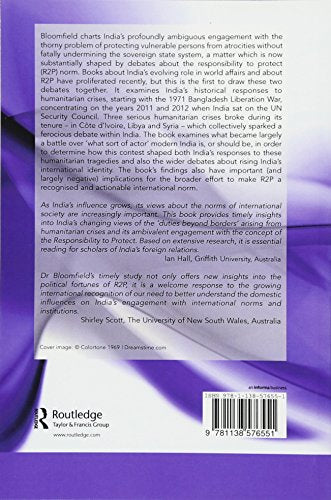India and the Responsibility to Protect (Rethinking Asia and International Relations)
India and the Responsibility to Protect (Rethinking Asia and International Relations) is backordered and will ship as soon as it is back in stock.
Couldn't load pickup availability
Genuine Products Guarantee
Genuine Products Guarantee
We guarantee 100% genuine products, and if proven otherwise, we will compensate you with 10 times the product's cost.
Delivery and Shipping
Delivery and Shipping
Products are generally ready for dispatch within 1 day and typically reach you in 3 to 5 days.
• Language: English
• ISBN-13: 9781138576551
• Writer: Alan Bloomfield
• Publisher: Taylor & Francis Ltd
• Pages: 245
• Binding: Paperback
• Subject/Category: International Relations, Politics
Details:
Bloomfield charts India’s deeply complex engagement with the critical issue of protecting vulnerable persons from atrocities, without undermining the sovereignty of states. This book delves into the debates surrounding the Responsibility to Protect (R2P) norm and India’s evolving role in global humanitarian crises.
The book begins by examining India’s historical responses to humanitarian issues, starting with the 1971 Bangladesh Liberation War, and focuses particularly on India’s time on the UN Security Council in 2011–2012, when three significant humanitarian crises—Côte d'Ivoire, Libya, and Syria—unfolded. These events sparked a heated debate within India about its international identity and its position as a global actor.
The book also evaluates the implications of India’s responses for the broader efforts to establish R2P as a recognized and actionable international norm.
Review:
"As India's influence grows, its views about the norms of international society are increasingly important. This book provides timely insights into India's changing views of the duties beyond borders arising from humanitarian crises." – Ian Hall, Griffith University, Australia
"Dr. Bloomfield's study offers valuable insights into the political landscape of R2P and the growing understanding of domestic influences on India's international engagement." – Shirley Scott, The University of New South Wales, Australia







